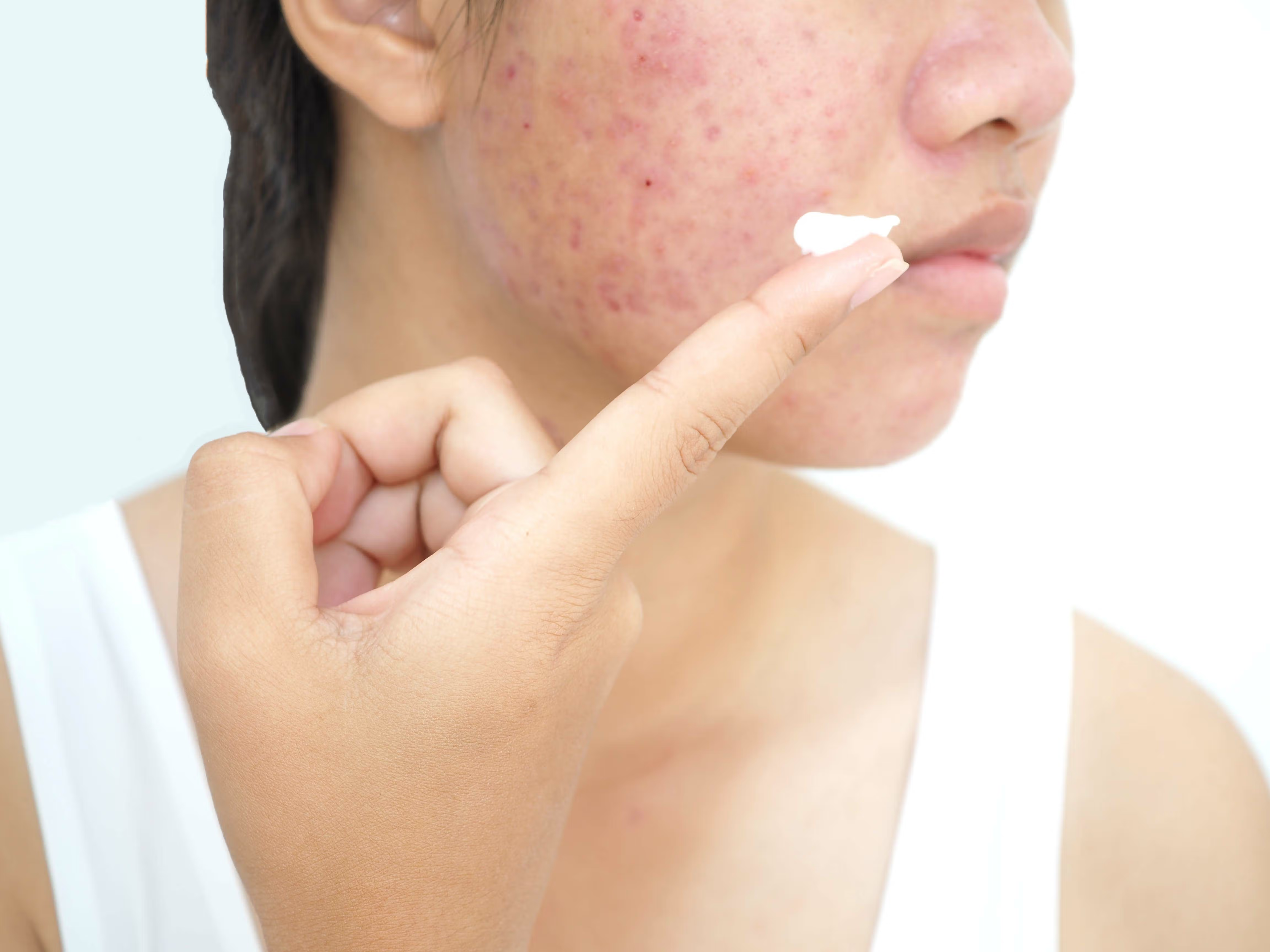- Case-Based Roundtable
- General Dermatology
- Eczema
- Chronic Hand Eczema
- Alopecia
- Aesthetics
- Vitiligo
- COVID-19
- Actinic Keratosis
- Precision Medicine and Biologics
- Rare Disease
- Wound Care
- Rosacea
- Psoriasis
- Psoriatic Arthritis
- Atopic Dermatitis
- Melasma
- NP and PA
- Skin Cancer
- Hidradenitis Suppurativa
- Drug Watch
- Pigmentary Disorders
- Acne
- Pediatric Dermatology
- Practice Management
- Prurigo Nodularis
- Buy-and-Bill
News
Article
Patients Treated for Acne Exhibit Higher Sebum, Hydration, and TEWL Levels than General Population
Author(s):
Key Takeaways
- Acne vulgaris patients show elevated TEWL, sebum production, and skin hydration, with medication users experiencing further barrier impairments.
- Significant differences in skin barrier parameters were observed between acne patients and controls, with younger age and male gender linked to higher TEWL.
These findings further suggest the implications of acne vulgaris treatment on the skin barrier.
Image Credit: © New Africa - stock.adobe.com

When measuring skin barrier parameters, researchers found that acne vulgaris patients had higher levels of transepidermal water loss (TEWL), sebum production, and skin hydration.1 Those who were currently being treated with acne medications had further impairments to the skin barrier than those who were not undergoing treatment.
“Due to the complexity of the epidermal barrier, a combination of various parameters should be obtained to fully interpret the barrier function as well as explore the relationships between each parameter,” the authors wrote.“Information on skin barrier parameters in acne patients could provide more insight into the pathogenesis of acne vulgaris and optimal skin care in acne patients. “
The cross-sectional analytic study took place in Thailand and included 316 participants. Each volunteer completed a questionnaire regarding their skincare habits and treatment routines. A full facial skin examination was performed by a dermatologist to ensure no other skin conditions other than acne were present.
Using this information, patients were divided into 2 groups; those with and those without facial acne. Participants in both cohorts were mostly female, with 152 patients in the control group and 164 in the group of patients with acne. The mean age of the acne group was significantly lower than the control group at 34 years and 48.6 years, respectively (p < 0.001).
Among the 164 participants with acne, about 90% had mild acne and only 41% were using treatment medications at the time of assessment. The most commonly used therapies were benzoyl peroxide, topical antibiotics, vitamin A, and AHA/BHA. Volunteers in the facial acne group were further assessed for their acne severity using the Thai Global Acne Grading System.
There were significant differences between both groups regarding all the measured skin barrier parameters. The mean TEWL was significantly elevated in the acne group (13.16 vs 10.63 g/m2 /h, p < 0.001), as well as the median sebum (3 vs 0 A.U, p = 0.002) and mean skin hydration (244.60 vs 222.60 uS, p = 0.001).
More specifically, patients with a higher TEWL were younger (p < 0.001), male (p < 0.001), and were not regularly using a facial moisturizer (p = 0.015). Skin hydration correlated with younger age, (p < 0.001), regular use of moisturizer (p = 0.032), and mild acne vulgaris (p < 0.001). Researchers were especially surprised by the unanticipated increase in hydration among acne patients. Similar results were found in the factors affecting surface sebum levels. Those who were male (p < 0.001), regularly used moisturizer (p = 0.04), and had moderate to severe acne vulgaris (p < 0.001) had higher sebum levels.
To further evaluate the effects of acne medications on the skin barrier, acne patients were divided into subgroups based on their current treatment status. The highest TEWL was observed in acne patients receiving treatment. The same was observed in skin hydration, when compared to control patients, demonstrating that the higher TEWL was not a result of high moisture content but rather a true barrier disruption from acne medications.
The small number of patients, cross-sectional study design, and concurrent usage of multiple acne medications may be considered limitations to the study. Longitudinal research to further assess the association between different medications and other skin barrier aspects is suggested.
Overall, these study results support the possible benefits of moisturizers with barrier-enhancing properties (i.e. ceramides) in patients receiving acne medications, as study participants who routinely used moisturizers had lower TEWL and higher skin hydration levels. Furthermore, the findings correlate with previous studies suggesting that compromising these factors of the epidermal barrier can contribute to the formation of acne.2 Investigators hope this study will help clinicians reduce adverse effects and improve treatment outcomes for patients with acne.
References
1. Sukanjanapong S, Ploydaeng M, Wattanakrai P. Skin Barrier Parameters in Acne Vulgaris versus Normal Controls: A Cross-Sectional Analytic Study. Clin Cosmet Investig Dermatol. 2024;17:2427-2436. Published 2024 Nov 1. doi:10.2147/CCID.S476004
2. Thiboutot D, Del Rosso JQ. Acne Vulgaris and the Epidermal Barrier: Is Acne Vulgaris Associated with Inherent Epidermal Abnormalities that Cause Impairment of Barrier Functions? Do Any Topical Acne Therapies Alter the Structural and/or Functional Integrity of the Epidermal Barrier?. J Clin Aesthet Dermatol. 2013;6(2):18-24.





